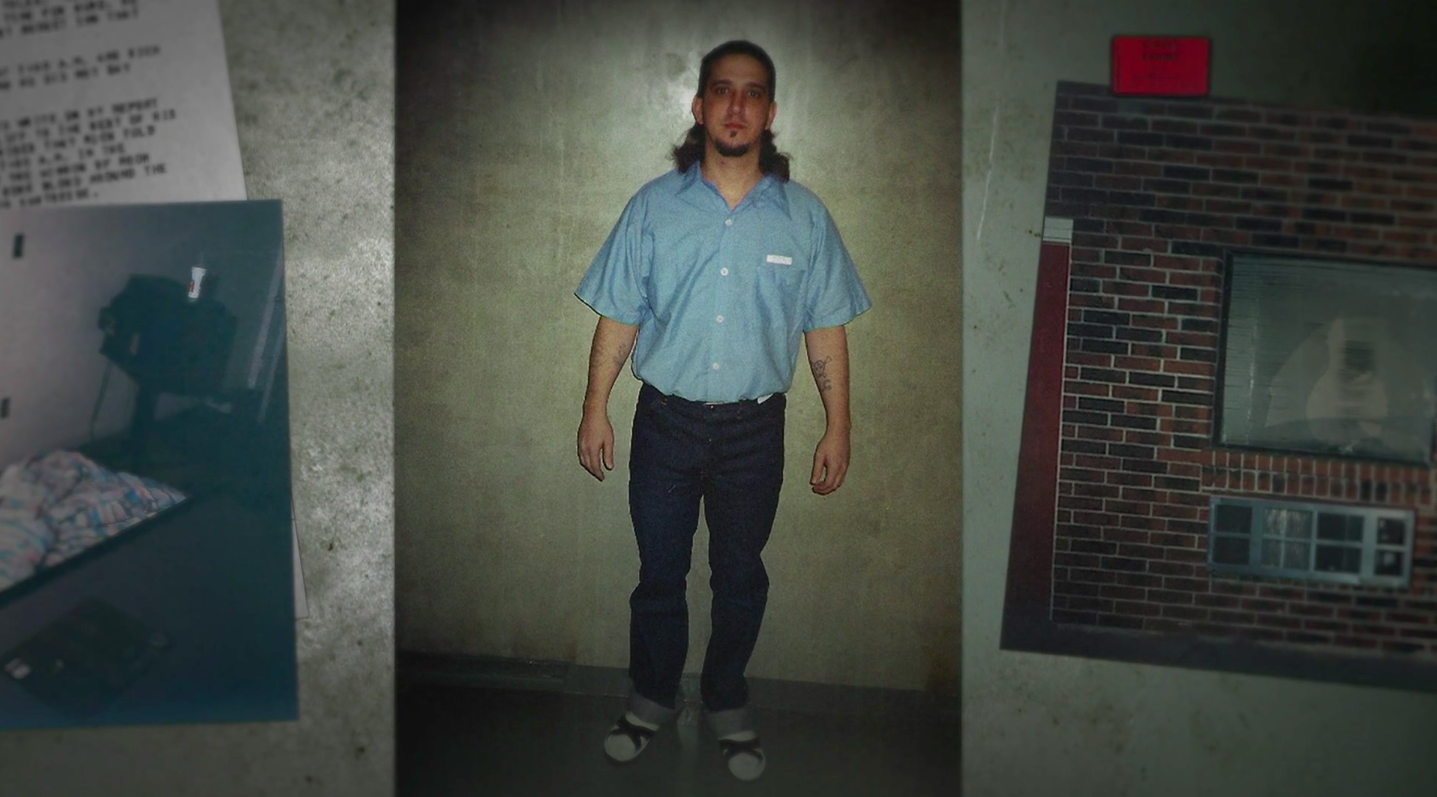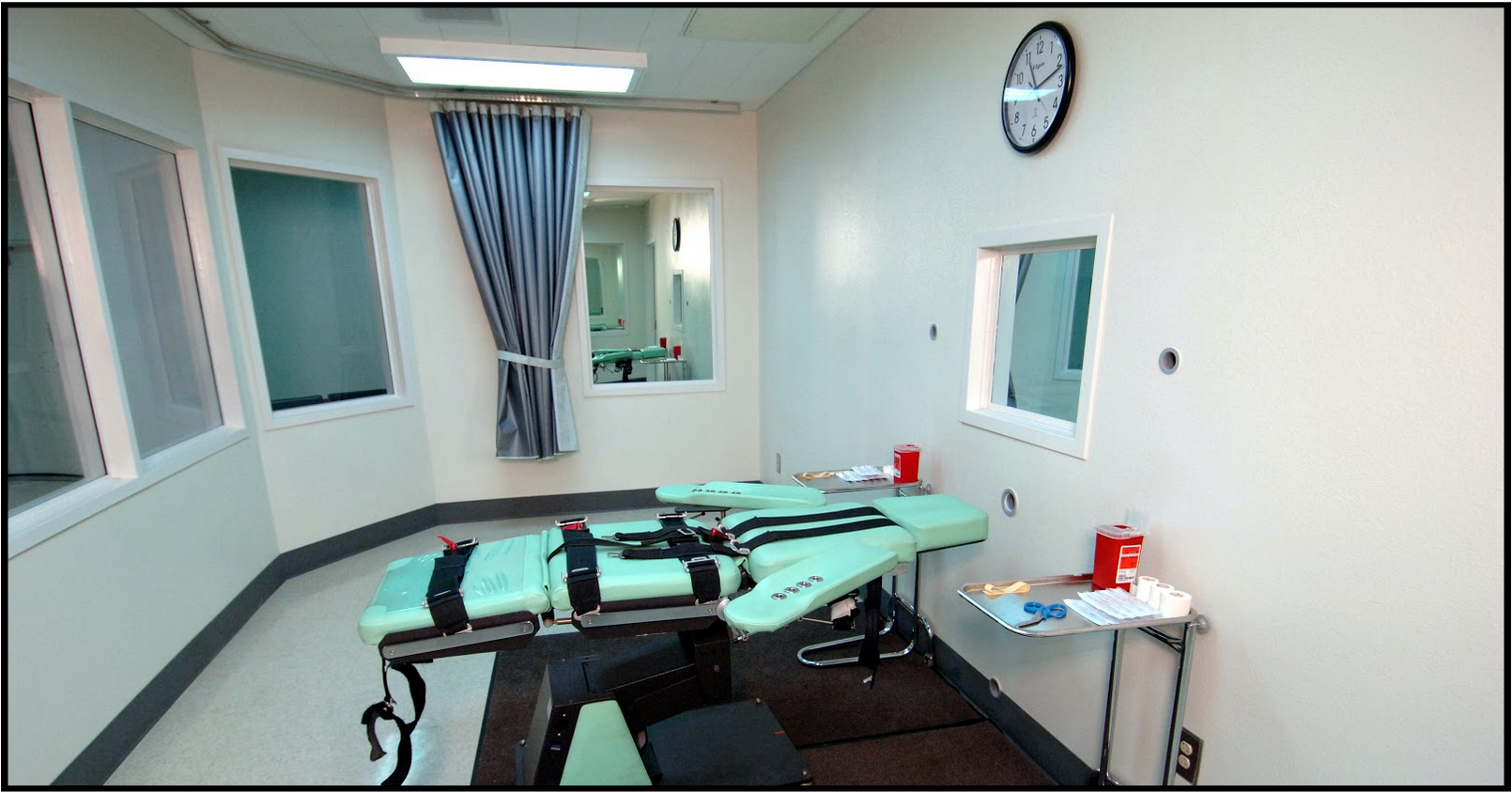New Show About Controversial Death Row Inmate Perfectly Captures Major Flaws in the Criminal Justice System

By:
A new Investigation Discovery show tells the controversial and dramatic story of current death row inmate Richard Glossip, a man advocates claim is innocent.
The series documents the accounts of Justin Sneed, who admits to the 1997 murder of Barry Van Treese, and Richard Glossip who says he wasn't involved. Everyone agrees that Glossip never touched Van Treese, but he's awaiting death at the Oklahoma State Penitentiary for a conviction of commissioning the murder.
However, his defense attorney hopes the documentary series "Killing Richard Glossip" can actually save his life.
"We allowed the filmmaker to look at this case through the eyes of our investigation, because we want people to come forward who have information about this case," attorney Don Knight told ATTN:. "We're trying to conduct a 20-year-old investigation. The more people who see the show the more likely it will be that someone will remember something."
The story's premiere has even promoted tweets from actor Mark Ruffalo.
In 1997, Van Treese owned a Best Budget Inn in Oklahoma City, and Glossip worked there as the motel manager, while Sneed worked as a janitor. Sneed beat Van Treese to death with a baseball bat and admitted it, but during interrogation from investigators, Sneed told prosecutors that Glossip ordered him to commit the murder. Because Sneed testified against Glossip, he received a sentence for life in prison while Glossip got the death penalty.
For reasons that point to deep systemic failures in multiple parts of the criminal justice system, Glossip was first sentenced to death in 1998 and he's eaten three last meals so far.
Here's why Glossip has had three last meals, but is still on death row:
1. The U.S. Supreme Court stayed Glossip's first execution date because of botched executions.
 Investigation Discovery - investigationdiscovery.com
Investigation Discovery - investigationdiscovery.com
Glossip and other inmates took the state of Oklahoma to court in Warner vs. Gross because of alleged faulty execution drugs used in the botched 2014 execution of Clayton Lockett. Lockett took 43 minutes to die and reporteldy rose off the table 15 minutes after losing consciousness. On January 15, 2015, Charles Warner, the lead plaintiff in the aformentioned Supreme Court case was executed and starting screaming that the drugs were burning him. His death made Glossip the lead plaintiff in the case in Glossip vs. Gross.
On Jan 28, 2015, the U.S Supreme Court granted Glossip a stay of execution 24 hours before he was scheduled to die. However in June, the justices made a 5-4 decision in support of Oklahoma's controversial death penalty procedures.
2. The Oklahoma Court of Criminal Appeals stayed Glossip's second execution date because of new evidence.
On Sept. 16, 2015, three hours before Glossip's second scheduled execution date the OCCA stayed Glossip's execution because of new witnesses that Knight and his team found. Actress Susan Sarandon even campaigned to stop the execution.
One witness came forward and said that Sneed told him and other inmates that Glossip had nothing to do with the murder, and a second witness said that Sneed was a drug user who would break into hotels for money. Another former inmate said that Sneed told him he killed Van Treese for money and never mentioned Glossip.
Knight told ATTN: that if Glossip was able to hire a more expensive attorney at the beginning of the case to investigate the murder and find witnesses, he may not be on death row now.
"This not a case that involved DNA. This is a case that involved statements made by the actual killer and as a lawyer it takes investigative work to get to the truth," he said. "If you're not willing to do that work, you can't win."
Before Knight represented him, Glossip retained the service of private defense attorneys and public defenders. Many low-income people sentenced to death have to rely on overworked and underfunded public defenders to try to save their life on appeal.
"My daughter is a public defender and I have great respect for public defenders, but many of them are managing huge caseloads," Knight said. "That's why people who have money and can afford their own lawyers never get the death penalty. They can get great representation."
3. Oklahoma Governor Marry Fallin stayed Glossip's third execution. He was told 45 minutes after he was scheduled to die.
After the stay two weeks earlier Glossip was again scheduled to die. However, Fallin gave a stay of execution to Glossip on Sept. 30, 2015, after denying his attorney's previous petitions for a stay. The reason, was that one of the drugs on hand for the execution should have been potassium chloride but instead, the drug on hand was potassium acetate. Warner who shouted that the drugs were burning him as he died was injected with potassium acetate during his execution.
The problem with lethal injection drugs is not unique to Oklahoma.

Staring on Sunday, the same day that Glossip's story is set to air, Arkansas planned to execute eight people in 10 days, and the executions were only scheduled in February, leaving a very short time for clemency appeals. The reason? The drugs used in the execution are about to expire. One of the eight was granted a stay earlier this week, and on Friday, an Arkansas judge granted a stay to the remaining seven men facing execution.
Knight said that lethal injection is a national problem in the criminal justice system. He said that the system needs more transparency, since several states don't disclose where they get their drugs from after they run out. States are not required by any federal law to say where their lethal injection drugs come from, and the Mississippi Supreme Court affirmed on April 13, that the state can keep it's lethal injection drugs secret. A 2014 poll by the Associated Press found that the majority of the 32 states that use the death penalty, do not disclose where their lethal injection drugs come from.
"Lethal injection is failing in this country because we can't find the drugs to go ahead and carry it out," he said. "State governments try to hide where they get their drugs from, which takes the death penalty underground and it leads to a lot of problems with these executions. That's happening around the country."
